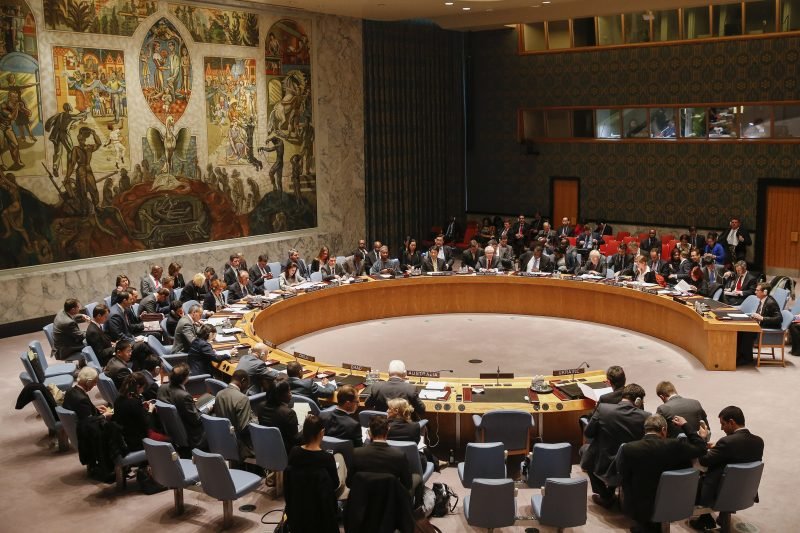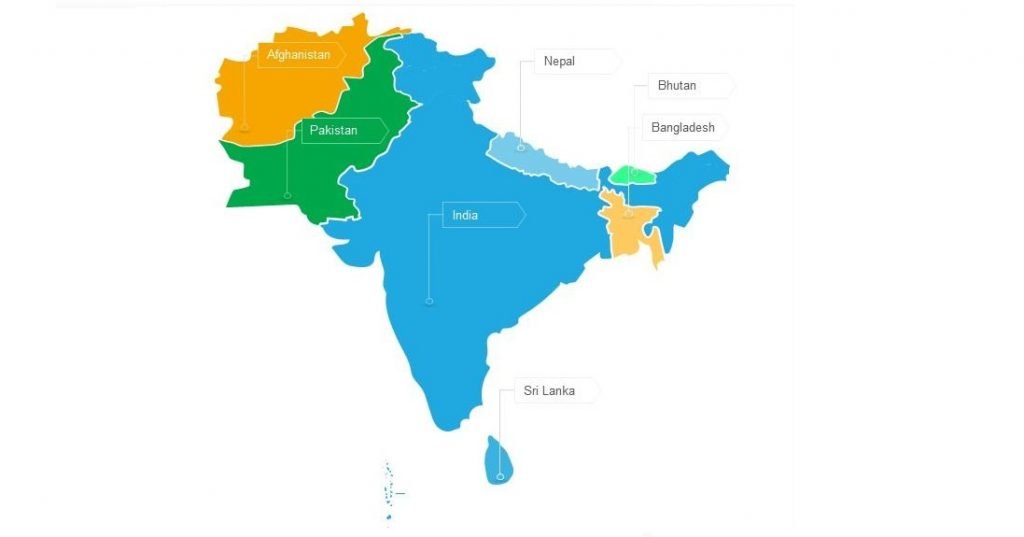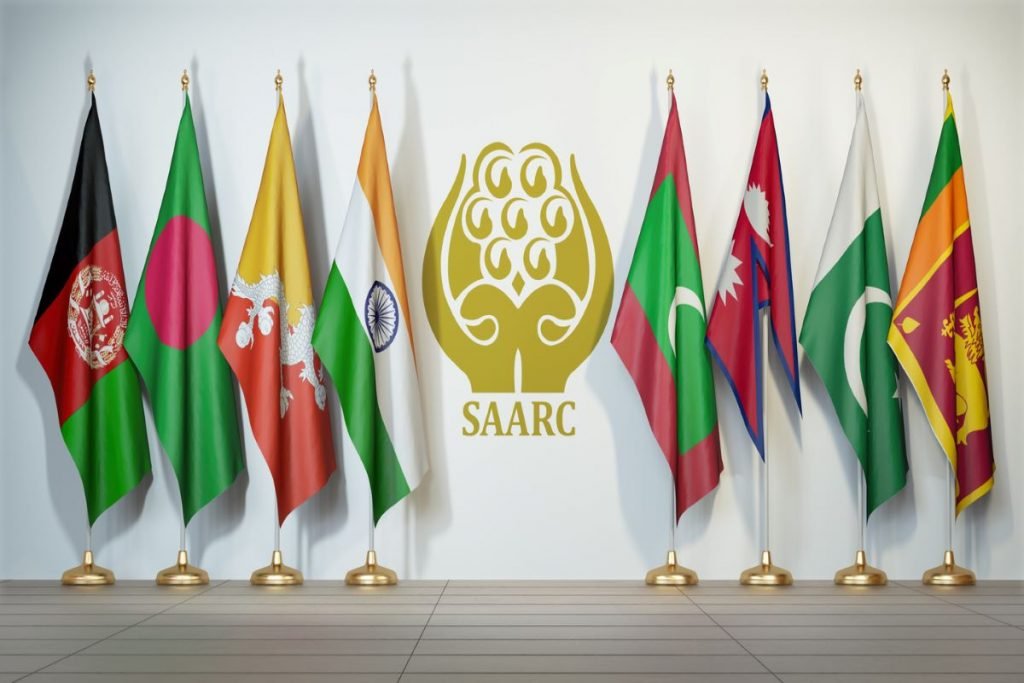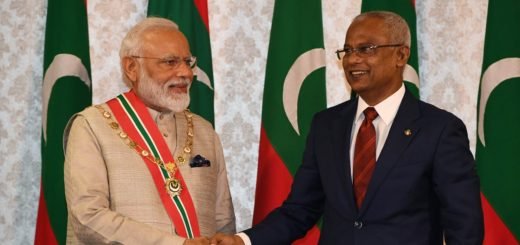They abstained: Choice, national interest, and a rare case of learning from history

India, Sri Lanka, Bangladesh, and Pakistan, together forms majority of South Asia. They are the four biggest economies with world’s youngest population. All four countries have been former British colonies with entangled history. The region is birthplace of three faiths and is home to one of the world’s oldest civilizations, the Indus Valley civilization. Apart from Sri Lanka, the other three formed one nation until 1947. Sri Lanka too has a direct connection with the subcontinent. ‘Mahavamsa’, considered the greatest chronicles of Sri Lanka, narrates the story of the founder of the Sinhalese people , which have their origins in West Bengal and Odisha, two eastern states of India. In August 1947, India and Pakistan became nation-states, while Sri Lanka and Bangladesh gained independence in 1948 and 1971 respectively.
These four countries are culturally, socially, and historically related to one another. Today, all South Asian countries border India, physical or marine boundary. Hindi and Urdu speakers in India and Pakistan can understand each other, while Bengali speakers of West Bengal can converse easily with people from across the border in Bangladesh. Tamilians in India share similar tongue to the Sri Lankan Tamils.

India gets its name from the river ‘Sindhu’, which is mentioned in ancient Indian script of Rig-Veda. The Arabs pronounced Sindhu as ‘Hindu’ and Greeks called it ‘Indu’, thus the land over a period came to be called as ‘India’. Sindhu river today is part of Pakistan and not India. Bangladesh’s national anthem and that of India is written by the same noble laureate Rabindranath Tagore. One of the greatest Emperors of India, Ashoka sent his children to Sri Lanka to spread Buddhism. In a sense, therefore, these four countries share a historical, cultural, and social past.
As nation-states, however, each has charted their own path different from the other. India became the biggest democracy in the world, Pakistan is included in UN’s grey list. While Bangladesh became one of the fastest-growing economies, Sri Lanka grappled with civil war. Although, a highly significant region for international relations, South Asia remains a ground for political mistrust. Anticipating that a more economical interdependence can pave the way for greater overall regional integration, South Asian Association for Regional Cooperation (SAARC) was initiated. But SAARC remains in limbo, with a continued lack of regional synergies.
On 28/02/2022, when UNSC convened a rare emergency special session of UN General Assembly, on Russia’s aggression against Ukraine, there were 35 countries who abstained. Each country abstained for its own standpoint and national interest. Surprisingly, all four countries–India, Bangladesh, Sri Lanka, and Pakistan had abstained. No other region in the world voted in the same nature as South Asia.

This stand, by South Asian countries, seems to be a rare testimonial of ‘learning from history’. There has been a history of loss of life, betrayal, and forced famine in South Asia, in another such war fought in Europe. One-sixth of all British forces who fought in the World War I were Indians (that included Pakistan and Bangladesh which were then part of India), 54,000 Indians lost their lives, 65,000 were wounded and another 4000 remained missing/imprisoned. Britain’s colonial rule dragged South Asia into a war to save Queen’s empire. Moreover, India was promised self-governing dominion state for its support in WW I. But after the war ended, Britain betrayed its promise.
In WW II, three and half million Indians were in uniform. Of Britain’s total war debt of three billion pounds in 1945 money, 1.25 billion was owned to India and never paid. In addition, in 1943 during the Bengal Famine, PM Churchill deliberately diverted essential supplies from civilians in Bengal, for Europeans as reserve stockpiles. This resulted in death of 4 million Indians.
It can be argued that during both the World Wars, these four countries were British colonies. Essentially, the places Britain brutally extracted resources, tortured its native population, and looted its wealth. Moreover, India was considered the ‘Jewel in the Crown’ in British Empire, hence suffering the most. Although inhuman, the people of these four countries came under Britain’s rule, forcing them into both World Wars.
When the current war erupted in Europe, these four countries no longer British colonies chose their own path, which was completely in national interest. Interestingly, there has been historic record at UN when western powers have abstained for their own national interest, acting against these South Asian countries. For example, during the 1960s UK and USA moved a joint resolution in the UNSC, deploring the use of force when India was liberating its territories from the Portuguese. Even as the wave of decolonization was sweeping the world in post-world war period, the western powers supported Portugal.
In case of Bangladesh, ever since its fight for independence from Pakistan, US has been disregarding the Awami League, the party of Sheikh Mujibur Rahman, who is considered the father of Bangladesh. US-supported Pakistan in UNSC against Bangladesh. During the 1971 Bangladesh liberation war, US sent a ten-ship naval task force towards Bay of Bengal. For Sri Lanka and Pakistan too, there have been such incidences when the western powers teamed-up against these countries at an international platform.
Abstaining does not mean supporting, neither does it mean opposing. It essentially means, to choose not to choose. It’s the path South Asia, especially India, is familiar with. India championed non-alignment, completely out of national interest, similar to the national interest that dominated US and USSR’s foreign policies. Non-Alignment although criticized by many world leaders and IR theorists, was a foreign policy approach uniquely customized to the circumstances South Asian countries found themselves into. Pakistan during cold war sided with USA, who today is highly critical of US, wanting to influence its foreign policy. In case of Bangladesh, Gary J. Bass in his book ‘The Blood Telegram’ remarks that US displayed ‘moral blindness’ in its foreign policy by ‘actively and knowingly’ backing Islamabad’s control over Bangladesh. Thus, both actively during cold war, and indirectly through UN abstentions, western powers have tactfully used all means in their national interest. Yet criticizing other countries when they do the same.
Furthermore, during the recent vote on removing Russia from UNSC, all four countries once again abstained. This was perceived by the West as a support, which had criticized the South Asian countries on their earlier abstention during the emergency special session. Voting at UN can be understood as a game of perception. Abstaining has one such perception.
After Russia annexed Crimea in 2014, the western countries put sanctions on Russia and removed it from G8. This did little to solve the problem. The current Russia-Ukraine war is a testimony to it. This is because UNSC’s objective is to stop a conflict by addressing its cause. But as Syed Akbaruddin, India’s former permanent representative to the UN, puts it, ‘for years now, UN has taken on the subsidiary pursuit of being a humanitarian council’. Therefore, South Asian countries’ approach to such humanitarian council is apt, where they criticized Russia’s actions. But when it came to vote of symbolism, these four countries independently and coincidently abstained.


















